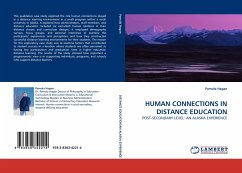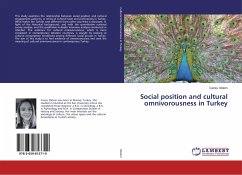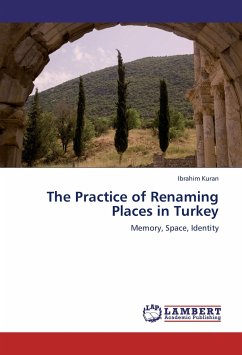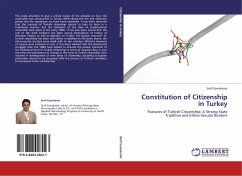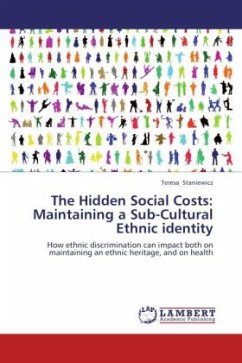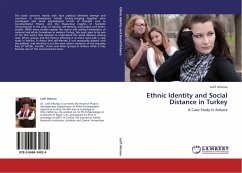
Ethnic Identity and Social Distance in Turkey
A Case Study in Ankara
Versandkostenfrei!
Versandfertig in 6-10 Tagen
45,99 €
inkl. MwSt.

PAYBACK Punkte
23 °P sammeln!
The book concerns mainly with how political identities emerge and transform in contemporary Turkish Society bringing together main sociological and social psychological trends of thought such as Constructionist Theory and the theoretical insights of Symbolic Interactionism in the areas of identity, self-identity, nationalism and ethnic studies. While many studies explain the macro and political dimensions of national and ethnic formations in modern Turkey, this work aims to be one of the first works that attempt to understand the social distance among main ethnic groups and the factors affecti...
The book concerns mainly with how political identities emerge and transform in contemporary Turkish Society bringing together main sociological and social psychological trends of thought such as Constructionist Theory and the theoretical insights of Symbolic Interactionism in the areas of identity, self-identity, nationalism and ethnic studies. While many studies explain the macro and political dimensions of national and ethnic formations in modern Turkey, this work aims to be one of the first works that attempt to understand the social distance among main ethnic groups and the factors affecting it at micro level with a case study in Ankara. It shows that self-identity is not necessarily shaped with the political, and ethnicity is not the most salient character of the everyday lives of Turkish, Kurdish, Sunni and Alawi groups in Ankara while it may become one of the most powerful ones.



